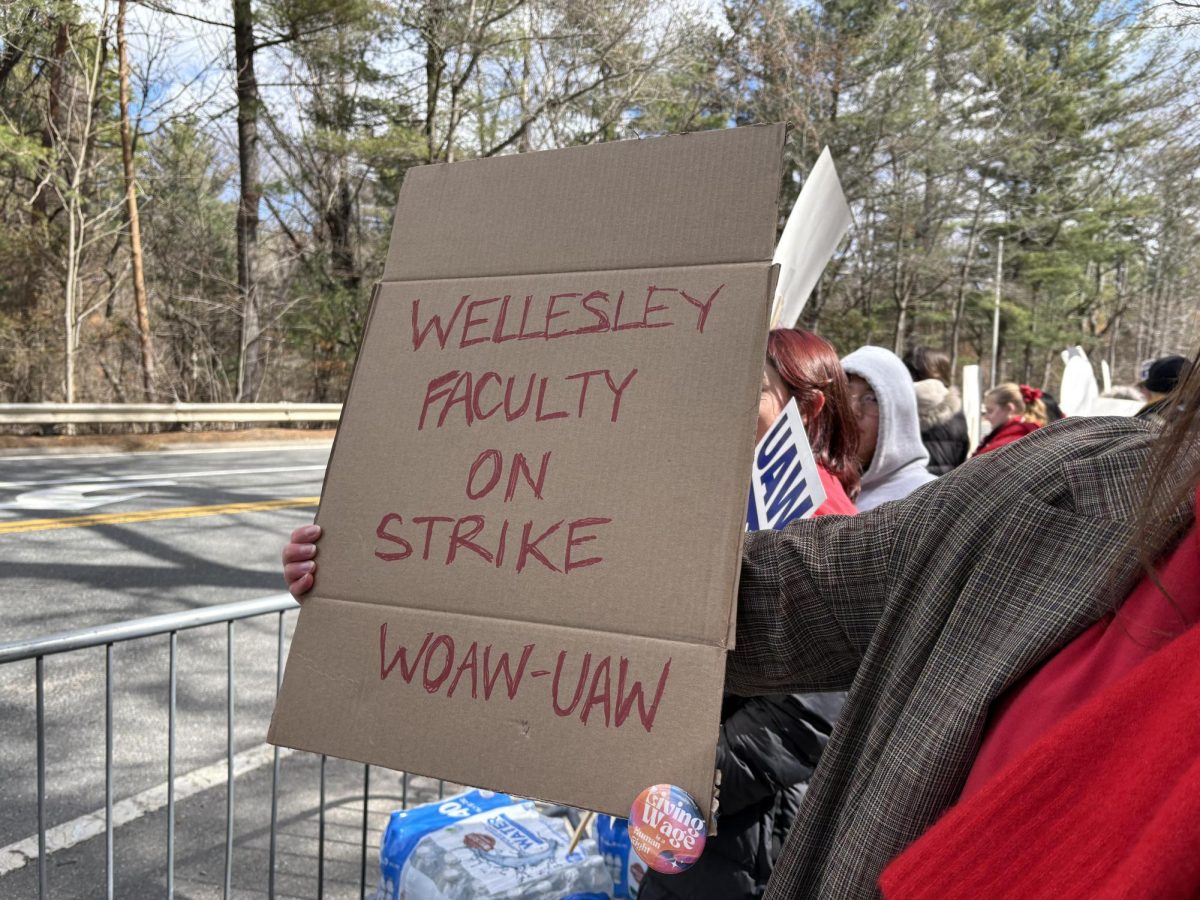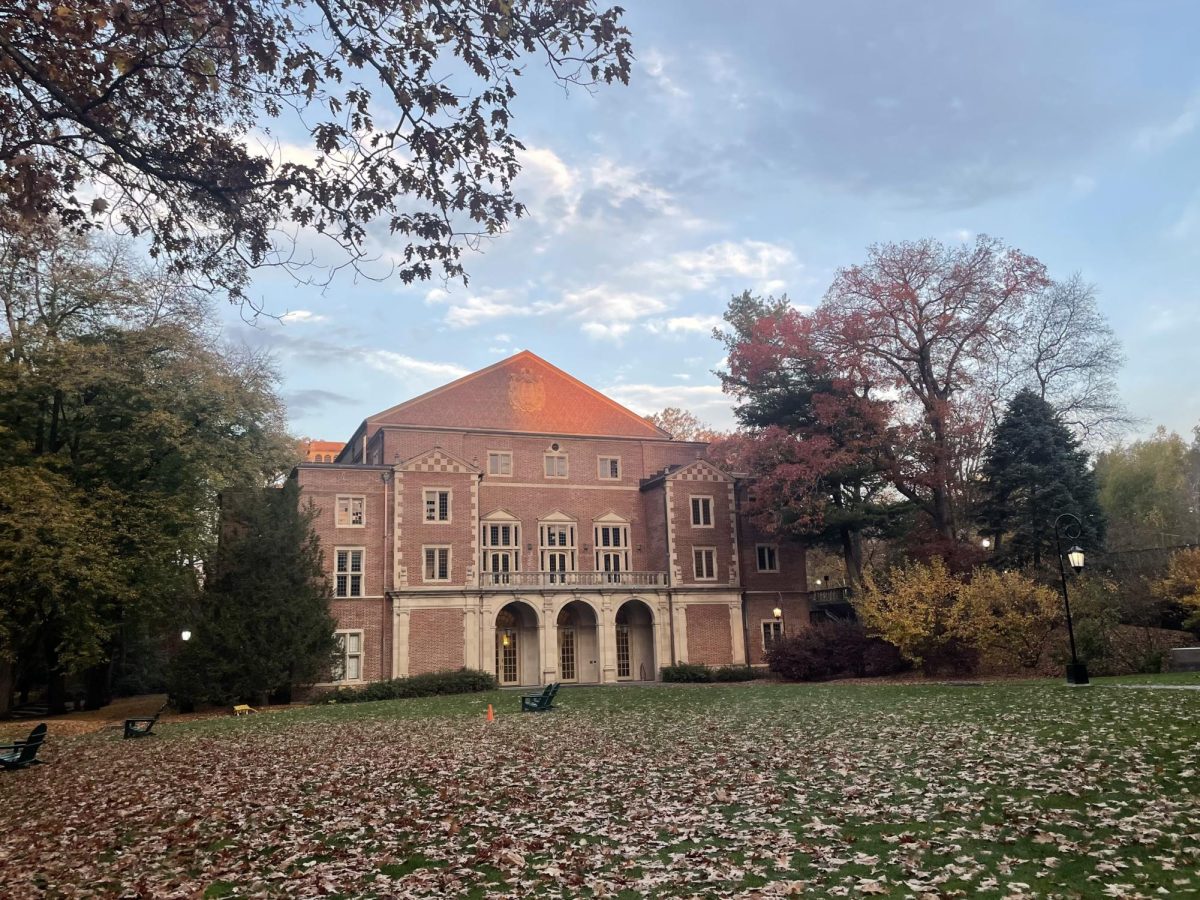In an email sent out on Thursday morning, Provost Courtney Coile reported the College’s plan for students to receive credit for courses as the strike goes on. Coile announced that students will receive 0.5 credits for courses taught by striking union members. She has asked students to enroll in new courses taught by tenure-track faculty as a plan to make up for lost contact hours affected by the ongoing strike.
“The plan must be implemented now so that students will have enough contact hours to support the 0.5 credit by the end of the semester,” wrote Coile.
In a statement to the News, the College said, “Since the length of the faculty strike at Wellesley is currently unknown, the College has developed a plan that will be effective no matter what the duration of the strike may be. If we were to wait to see how long the strike ends up lasting before taking action, we would have missed the window to put in place a plan that will be needed if there is a long strike.”
The College also said, “If the strike ends quickly enough, it will not be necessary for students to remain enrolled in these new classes, as students will be able to return to their original classes and earn full credit.”
The Wellesley News has asked the College to clarify what “quickly enough” means.
The News previously reported that the College is suspending courses taught by striking union members not covered by a substitute instructor. The initial announcement, which came Thursday morning, informed students that, unless they were enrolled in WOAW-taught courses with a “high number of minutes,” they would only be awarded 0.5 units upon receiving a satisfactory grade.
Feasibility of College’s plan
To address how the plan may affect students on visas and financial aid, the College will reopen registration on Saturday, Mar. 29.
“Tenure-stream faculty … have been asked to open up their classes to allow some number of students to join the class in progress…Students who join the class now will be signing up for a 0.5 unit, mandatory credit/no-credit version of the course,” read the Provost’s first email sent Thursday morning.
To understand if there would be enough seats in tenure-stream faculty courses to support the number of students who courseload now drop below full-time status, The Wellesley News conducted a preliminary analysis based on data from the course browser
As of Mar. 27, Workday and the Course Browser show 425 classes with open seats, totalling 2,672 open seats.
These figures exclude PE classes, First-Year-Writing classes and QR 140. 55 of these classes are labs, and 304 classes have registration restrictions, such as prerequisites, instructor’s permission or class-specific restrictions. 165 of these classes are taught by Non-Tenure-Track (NTT) faculty.
It is not immediately clear to the News how many NTT members in the Union choose to teach their classes.
Students will be able to register for classes taught by tenure-stream faculty. This leaves 245 classes with open seats, totalling 1,674 open seats. This number excludes laboratories, but includes classes with registration restrictions.
As many NTT faculty are assumed to teach introductory courses, students who are most likely to be impacted by the strike will be primarily underclassmen who may lack the prerequisites to easily bypass registration restrictions. This leaves 86 classes with open seats, totalling 725 open seats.
As of midnight on March 28, it is unclear to the News how many courses will be available for registration. Although tenure-stream faculty were asked by the Provost Office to allow affected students to join their courses, professors could decide for themselves whether they would open their classes.
The Registrar’s Office will confirm on Friday at noon which courses will be subject to credit changes, and the Course Browser will display which classes will accept new students.
Performance
Students will take these newly-added courses as mandatory credit/non-credit, raising questions about how the new plan would affect academic performance for existing and new students.
An email template circulated among students by the Union and Labor Advocacy Taskforce (UniLAd) raises concerns about how the new plan could influence learning for both students already enrolled in tenure-stream courses and students who plan to enroll in said courses.
“Reopening courses will devalue the students already in class, who have put in half a semester of work. It devalues the students who would have to scramble to add classes, forcing them to catch up with a tremendous amount of coursework,” said the document.
“Instructors are expected to be mindful that students will not have seen content from earlier in the semester, but are not expected to re-teach this material. Having classes be graded CR/NCR will help with any learning gaps students may have,” read the Provost’s first email.
Contact hours and credit hours
The main reasoning the College has provided for the credit change and course registration is the requirement for Wellesley to comply with federally-mandated contact hours.
“It is important to understand that federal regulations govern both the number of contact hours required to earn college credit and the number of credits a student must be enrolled in to maintain full-time status for financial aid and visa eligibility purposes,” the Provost wrote in the latest email sent Thursday evening.
According to the Code of Federal Regulations, a credit hour is “one hour of classroom or direct faculty instruction and a minimum of two hours of out-of-class student work each week for approximately fifteen weeks for one semester…or the equivalent amount of work over a different period of time.”
The New England Commission of Higher Education, which awards Wellesley’s accreditation, uses this same definition.
A typical Wellesley course meets for 75 minutes twice a week, so has 2.5 contact hours per week. Wellesley’s registrar states that “One (1) unit of Wellesley College work typically equals 4 semester-hours or 6 quarter-hours.”
Even though there is a minimum requirement for credit hours, the Department of Education wrote in a Q&A page that “there is no ‘seat time’ requirement implicit in the definition of a credit hour.”
It further clarifies that “the credit-hour definition does not dictate particular amounts of classroom time versus out-of-class student work.” Some striking faculty have encouraged students to continue to submit assignments and work as outlined in their course syllabi.
In a similar union dispute at Columbia University in November 2021, all of Columbia’s undergraduate schools adopted a pass/fail policy for the semester after graduate student workers of the Student Workers of Columbia-United Auto Workers went on strike.
In Columbia’s case, since many classes did not meet the state-mandated 126 hours of teaching and learning per semester, Columbia adopted a “credit-pending policy” where students were required to make up classwork and instructional time through makeup essays during winter break and summer courses.
In a statement to the News, the College said that the Columbia strike, and other strikes mentioned in a recent Wellesley News opinion piece, “occurred under very different circumstances than the strike at Wellesley,” with differences in time of the semester, duration, and the COVID-19 pandemic.
The Wellesley News cannot locate or identify the specific policy or definitions that Wellesley College currently follows and interprets for its plan regarding contact hours and credit hours and their connections for compliance matters.
The News has reached out to the College for comments on their interpretation of contact hours and credit hours.
Community Responds
The student executive board of Slater International Center expressed frustration with the announced plan, in an email sent Thursday night, specifically citing concerns about the disproportionate effects on international students.
“By implementing this sudden policy without proper consultation or consideration, the administration has recklessly put us at risk…We, as international students, are already at heightened risk, and now we are under the threat of not being eligible to maintain our visas and qualify for financial aid,” the students stated in the email.
Contact the editors responsible for this story: Valida Pau, Galeta Sandercock
Updated at 4:26pm on March 28th to reflect College comments.




